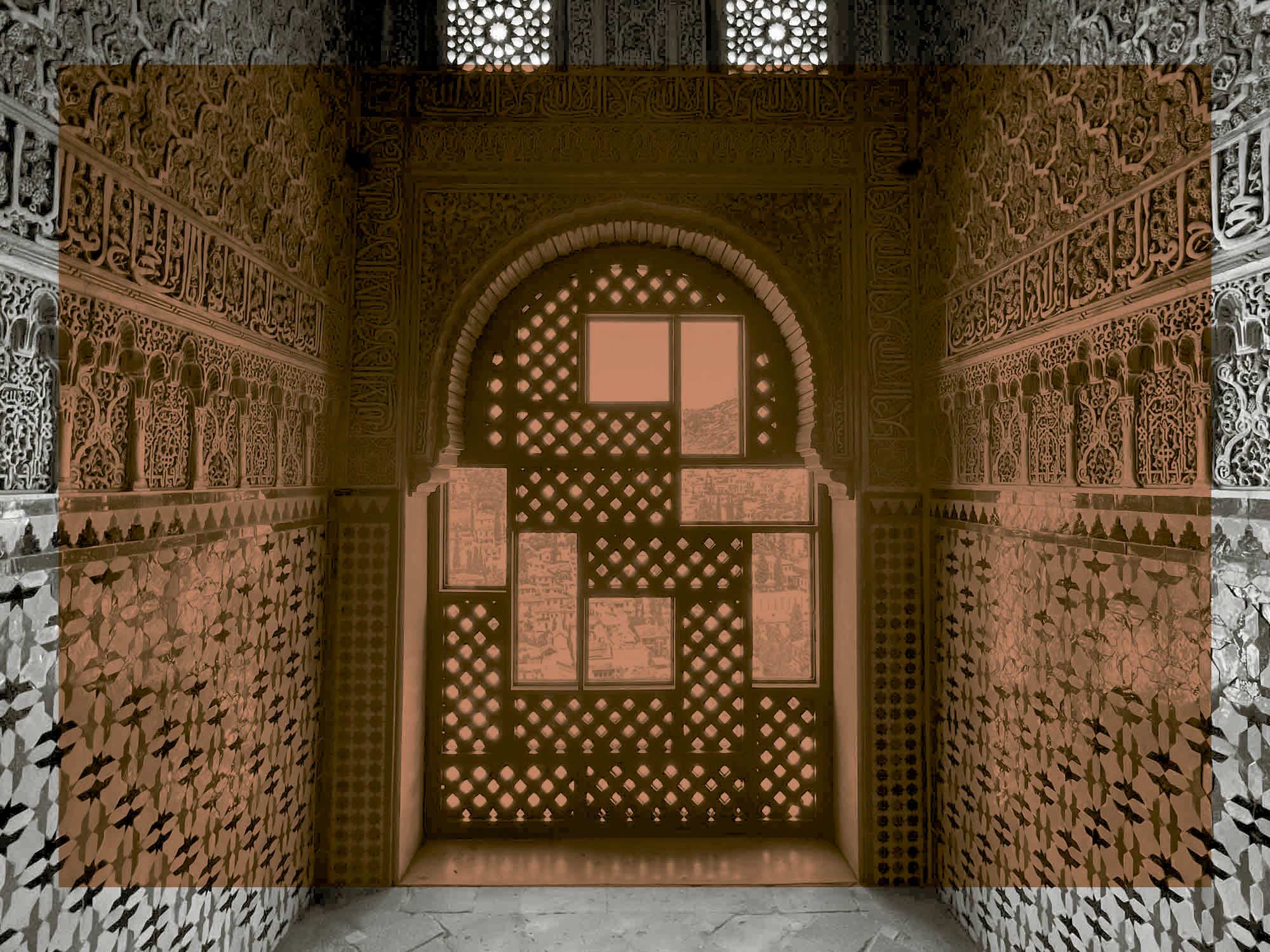A news item, “History Classes That Speak to Our Times,” featuring Michael Zech, professor at Alanus University and history teacher at the Waldorf School in Kassel, was published in our Weekly last year. Here are excerpts from one reader’s reaction, summarized by Gilda Bartel and followed by Michael Zech’s response.1
History lessons need to be revised, i.e., freed from a Eurocentric worldview? And this is necessary because this view conveys a cultural hierarchy that is part of the problem of racism? Such an endeavor would eradicate the core of Waldorf education, namely, the fundamental law of developmental psychology. The development or evolution of culture corresponds psychologically to phylogenesis, just as individual soul development corresponds psychologically to ontogenesis.2 So, should this vital foundation of the idea of Waldorf schools now be abolished? The entire curriculum of Waldorf schools, as it was developed by Rudolf Steiner, would simply be destroyed with this “revision.” One hundred years ago, Steiner warned of the death of culture.3 If we wish to cultivate the capacity of our ‘I’—which is necessary to fulfill our tasks on Earth—we must be able to retrace cultural evolution, as it took place through the great cycles of time, following the soul’s growth up to the present day. When we take this into consideration, it is easy to see that cultural death equals soul death. The sense for the soul, for the idea of development, disappears.
When we think of a hierarchy of cultures, we think of a spectre. As a metaphorical example, imagine a map of Switzerland, where large and small places are arranged in a hierarchy: the metropolis of Zurich at the peak and a mountain village with twenty inhabitants at the bottom. But is Zurich then all of Switzerland? No! In reality, all the places, together, make up the country as a whole, and what happens in a village can be more important for Switzerland today than what happens on the main boulevard of a big city, or vice-versa. All the different cultures have complete and vital validity. Their existence is necessary in order for souls to be able to evolve.
Cultures must communicate with each other—then they can truly fertilize each other. Amalgamating and leveling means elimination, killing. Souls come and go; their development is always individual—it can speed up or slow down. Cultural and soul development must always be thought of as dynamic or, at least, processual. In this context, the idea of hierarchy is comparable to an excessively pathogenic virus in the body of humanity. Many places are still haunted by it. But, in the age of the consciousness soul (i.e., today), it is possible to understand where the virus is appropriate, where it makes sense, and where it does not. It is not the idea of the evolution of culture that is part of the racism problem. The error comes when the motile concept of culture, which is meant to be thought of as developing over time, is, instead, projected into the spatial dimension, and, thereby, killed. Projecting cultural evolution’s cycle of time into a spatial dimension and reading it as a hierarchy, causes the death of culture. That this is what is happening today is a sign that we no longer want to think about the idea of evolution.
Rudolf Steiner’s worldview and, thereby, the Waldorf school curriculum, are not Eurocentric, but rather universal. In Occult Science, he presents the greatest conceivable concept of evolution. Europe is a middle stage in a complex, many-membered, many-layered process called the evolution of consciousness. After the current fifth post-Atlantean cultural epoch, in which we currently find ourselves, further epochs will follow. The fourth, and partly also the fifth epoch, are played out geographically on European soil. What is so bad about the fact that consciousness has developed its momentary blossom here? Does it have to destroy itself instead of communicating its cultural achievements to the world? On the contrary—it is, in fact, crucial for humanity as a whole that each culture is able to develop its own blossom and that a struggle of ideas (instead of weapons) can take place. Cultures have their tasks in the world as a whole, just as every instrument has its task in the orchestra. Just because one person plays first violin does not mean that the others are superfluous, and even the first violin pauses while the flute plays its solo.
Response from Michael Zech
I am grateful for the reader’s letter concerning history lessons, as it provides some clarification. My article was based on an abridged interview published in the magazine Erziehungskunst and was further shortened for Das Goetheanum. This necessarily entailed a loss of clear distinctions, so that some statements seem more indisputable than they were actually intended to be. I don’t have the intention (nor does anyone who endeavors to think through the historical understanding underlying the Waldorf school curriculum) of leveling off or dismantling the cultural-historical approach suggested by Steiner. Rather, I (and others) wish to think it through on the basis of today’s knowledge and current societal and scientific discourses. This is necessary, first of all, since we are following on more than a hundred years of practice, but it also meets Steiner’s request to further develop Waldorf teaching on a monthly basis. It is about extending what we understand takes place in the formation of cultures throughout the evolution of human consciousness.
A wonderful diversity of human cultures emerges from Steiner’s characterizations of certain features of the cultural epochs. Just as general developmental processes (e.g., sexual maturity, the capacity for judgement, etc.) take different forms in each individual biography, so, too, do cultural changes (changes in consciousness) accompany different ways of living (in and with nature, through farming, in urban theocratic cultures based on the division of labor and a cosmic orientation, etc.). The presentation of Egyptian culture should, therefore, not be abolished, but it can be pointed out that similar cultural forms have occurred in other places and at other times and can be referred to when necessary.
I entirely agree with the beautiful picture of the Swiss landscape with large and small towns existing side-by-side, all together in one landscape; it is a meaningful picture of cultural diversity. However, it would be strange to mark some cities as insignificant or even decadent or label them with certain typologies. Yet, this is what our colleagues on other continents experience. They ask whether a historical presentation of advanced civilizations that leads from India to Europe assigns Europe the rank of an advanced civilization and, thereby, esoterically legitimizes the colonial tradition. This can only be countered by pointing out that although the evolution of consciousness is stamped by specific cultural distinctions, it cannot be narrowed down to cultural affiliations. It is part of the consciousness soul’s configuration that it does not remain stuck in the assumptions of our own culture, but rather that we transform ourselves and our individual doppelgangers, becoming sympathetic human beings by being able to confront our own foreignness.
This is painful for many, but it is the center of a Michaelic culture that does not set the many-faceted against each other but rather in relation to each other. This is especially true for anthroposophical culture. Like you, I hold the criterion of hierarchy to be a condition that needs to be overcome. However, this does not work if I denounce welcome sensitizations. Rather, I must work through the pictures I have of what I consider belonging to myself and what I consider foreign, working to be aware of my underlying narrative, my conditioning. This is not cultural death but rather the rescuing of culture. This also applies to working through the structures of racism.
These are structures that make belonging and not-belonging an inclusive and exclusive criterion (e.g., national affiliation or the denial of anthroposophical qualifications). I will not go into the difficult question of whether or not someone who has made fifty clearly racist statements should be called a racist, but I hold that anthroposophy and Waldorf education are not, in fact, racist. In his Occult Science, Steiner presents his understanding of evolution and culture. According to his own testimony, he did this on the basis of his spiritual research. He summarizes significantly large sweeps of time in a few sentences. It was never intended as a historical presentation but rather as an overall stimulus to understand evolution. Steiner would never have sought to prevent such statements from being related to the contemporary data and evidence of modern historical science. After all, he was working to relate spiritual research to the physically perceptible world, which is ultimately the manifold expression of spiritual activity.
Relating education and history to all we encounter today is not leveling or dismantling but rather an expression of spiritual orientation, and, in this way, it enlivens culture. Statements such as “Rudolf Steiner’s worldview and, thereby, the Waldorf curriculum are not Eurocentric . . .” depend on how those who engage with his worldview implement it today. This also includes examining the question of whether Steiner’s perspective on humanity was not actually Eurocentric after all and whether cultures are naively characterised and divided into periods. Incidentally, Steiner himself rejected the connection between ontogenesis and phylogenesis as a naïve concept and one that was unsuitable for pedagogy. So, what promotes the death of culture—standstill or the continual permeating of one’s own concepts?
Translation Joshua Kelberman
Title image One of the chambers in the Hall of Ambassadors in the Nasrid Palace, 14th century, Granada, Spain. The Nasrid dynasty, Muslim rulers, ruled the Iberian Peninsula for three centuries in the Middle Ages. Photo: Sofia Lismont, Graphic design: Fabian Roschka
Footnotes
- Original article: Michael Zech, “History Classes That Speak to Our Times”, Das Goetheanum Weekly, No. 51/52, (2023.) If you are interested in contacting the reader who wrote the letter summarized above, please contact the editorial office for her e-mail address.
- Translator’s note: The German words Entwicklung/entwickeln signify meanings that correspond to both “development/to develop” and “evolution/to evolve.”.
- Rudolf Steiner, Michael’s Mission: Revealing the Essential Secrets of Human Nature, CW 194 (Rudolf Steiner Press, 2016), lecture in Dornach on Dec. 15, 1919.






absolutely wunderbar! wonderful article/thoughts about how humans can better enjoy one another in their diversity of views .. but how to get there requires greater visions?